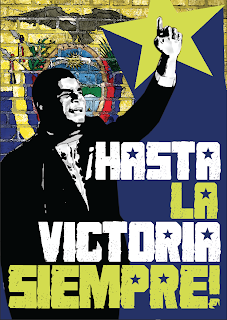Blog (1)
I was talking to my friend when the captain’s voice interrupted to announce that the planewould be landing in twenty minutes. I took a deep breath and went into a profound silence. As the plane wheels squeezed over the runway, my mind puzzled with thousand question about my destiny in a new country. Secretly, I cheered my achievement getting to the promise land after a lengthy trip through Central America. I spent some time in Nicaragua and Cuba which embedded in my believes that economy one of the most motivating element for human struggle and movement. I saw with my own eyes in Havana and Managua how the American dollars inflect its magical touch on all aspect of live. Every time I walked from my hotel room in Havana to the Beach I wounded around to be stunned by the hunger and the poverty that replaced the “Marxist promise” of equality and prospers. Throughout the human history people organized and rebelled to satisfy their basic need such as food, clothing, and shelter; likewise, all different ideological theories tried to
diagnose the defect in human societies and write the treatment description for our suffering. From the French Revolution in 1789 to the Russian Revolution in 1917 humanity still looking for answer. One of the hottest spot of revolutionaries is Latin America for its obvious reasons. The continuous intervention of the United State of America in the internal affairs of Latin America countries, the lack of unifying identity, and the poor economy they inherited post colonial era. Therefore the rise of nationalist ideologies and movements throughout the region was the natural outcome of such circumstances. Nationalism met the psychological and the physiological needs of the masses in Latin America. It created the unifying identity and elevated national by rejecting all thing foreigners and promoting nativity. In addition, nationalistic movements provided the basic economical need for the poor and created a welfare state that supported a large population. On the other hand, the rapid industrialization of Latin America countries created small meddle class and cause a mass migration from ruler areas to cities which lead to unequal development . Increased inflation and sanctions that United State of America imposed on nationalist countries cripples their economy. The collapse of the Soviet Union added another reason for nationalist tone to fade away. As a result of the ideological vacuum the collapse of nationalism created, Latin America embraced the neoliberalism ideology. Neoliberalism movement throughout Latin America focused on solving the economic problems such as inflation and huge debt by encouraging free trading, market deregulation, and export production. Neolibralism is credited for paying most of Latin America debts and increasing the individual income. However,how those two ideal economical goals were reached is controversial. The impact of
neolibralism on social condition and rise of inequality was huge “The most striking fact is the resilience of high inequality”. http://lasa-2.univ.pitt.edu/larr/prot/fulltext/vol39no3/huber.pdfNeolibralism
deregulated the economy and slashed any law was created by nationalist to protect local factories. In addition, Neolibralism reduced the national spending and most of the time completely stopped any public program was created by nationalist to help poor people. Due to the Neolibralism approach of free marketing worker unions became weak and labor cost became cheap. Few people were able to make money,while the majority of poor Latin Americans felt the pinch “The consequences of neoliberalist policies are far reaching for any nation, but particularly hurtful for the majority of Latin American residents.”citizenspress.org › Editorials











Add a comment